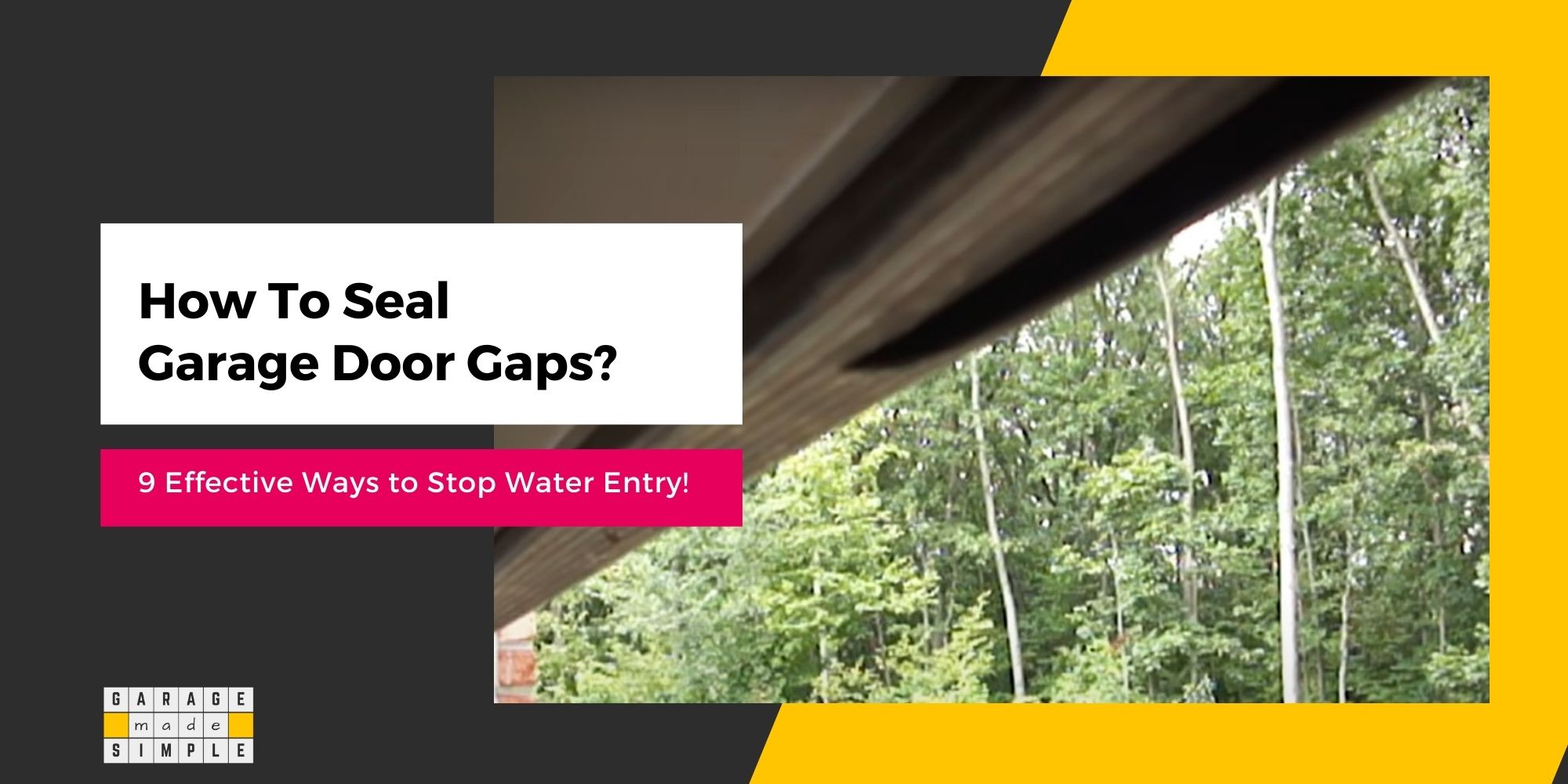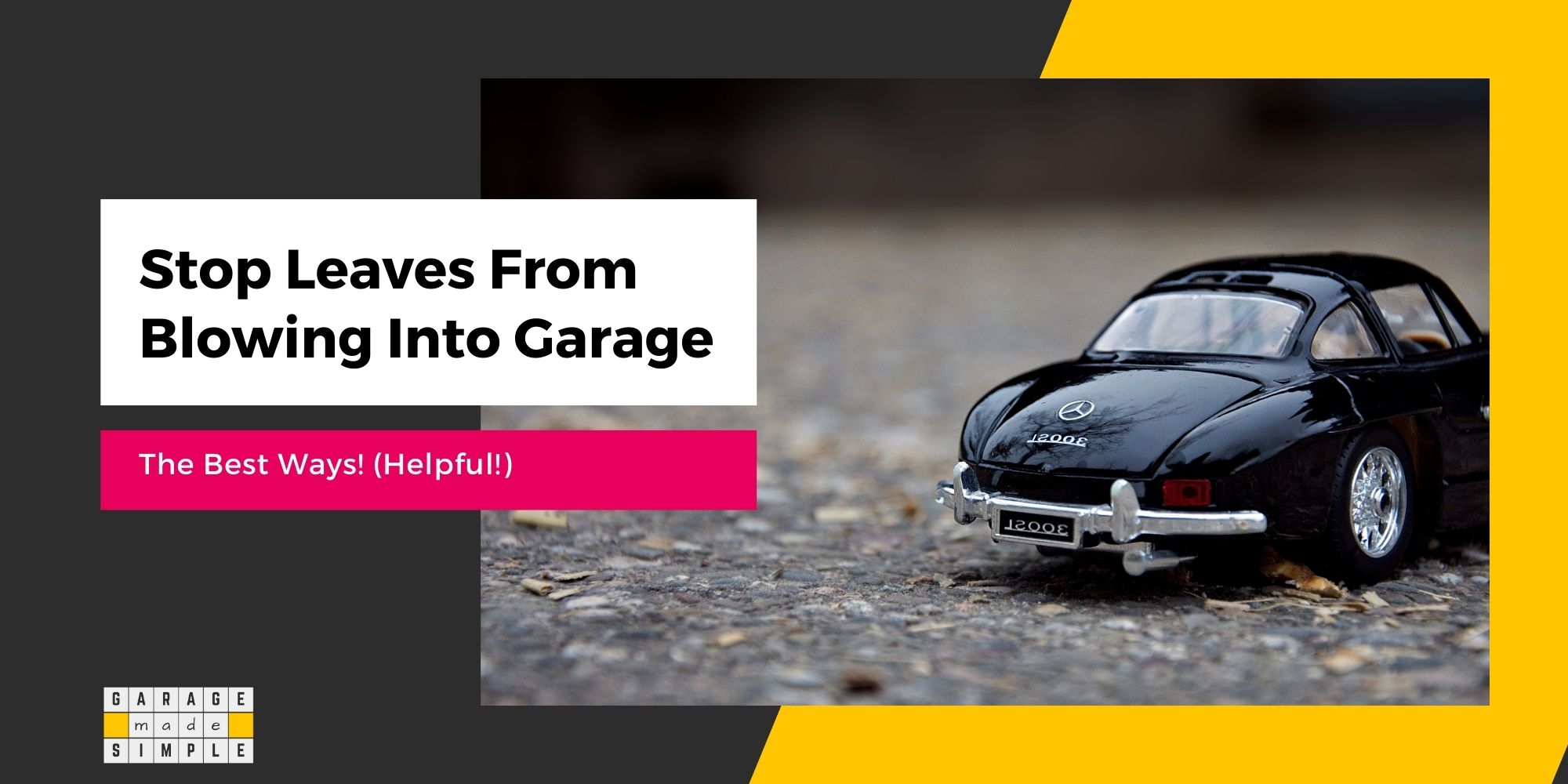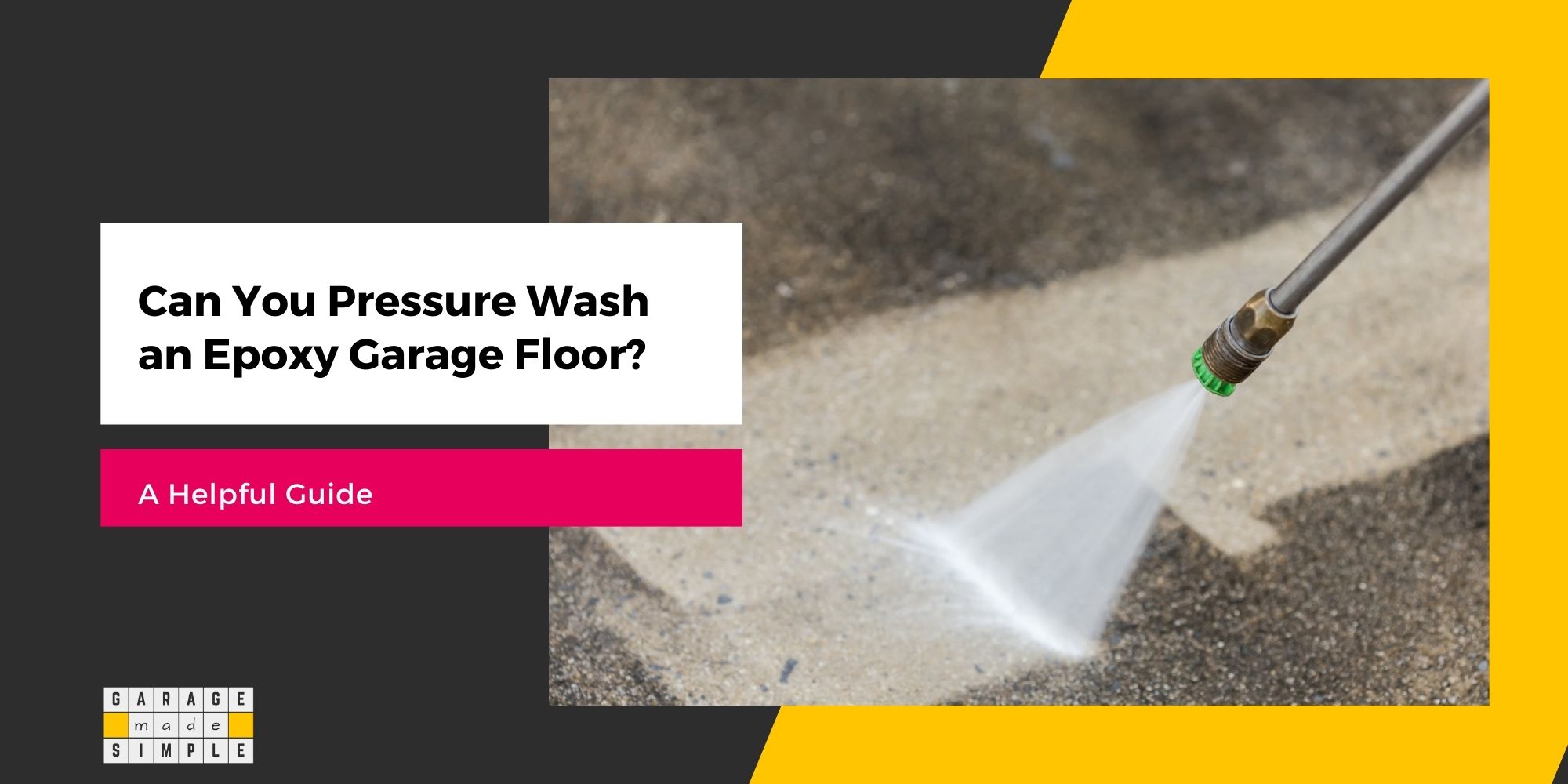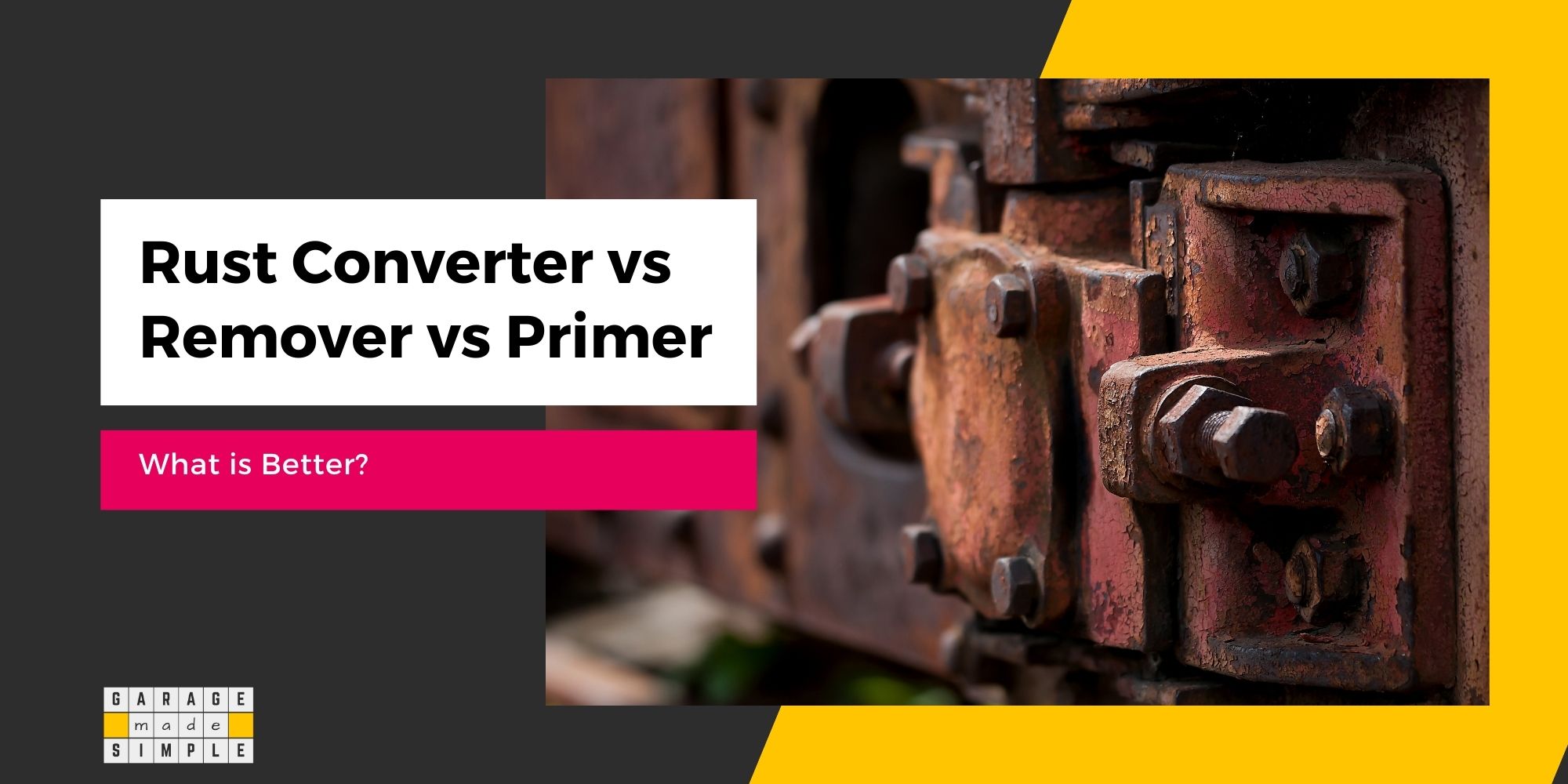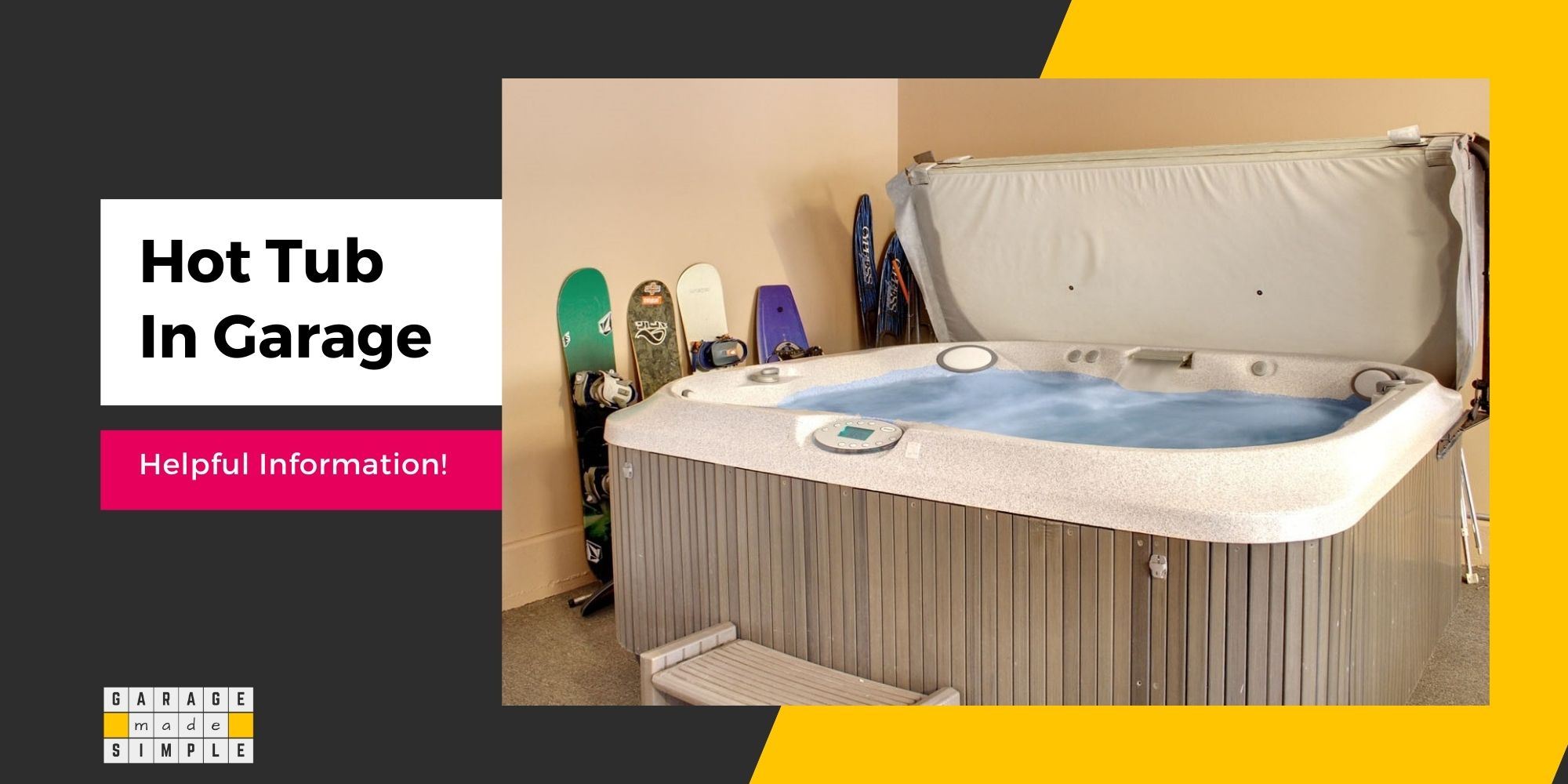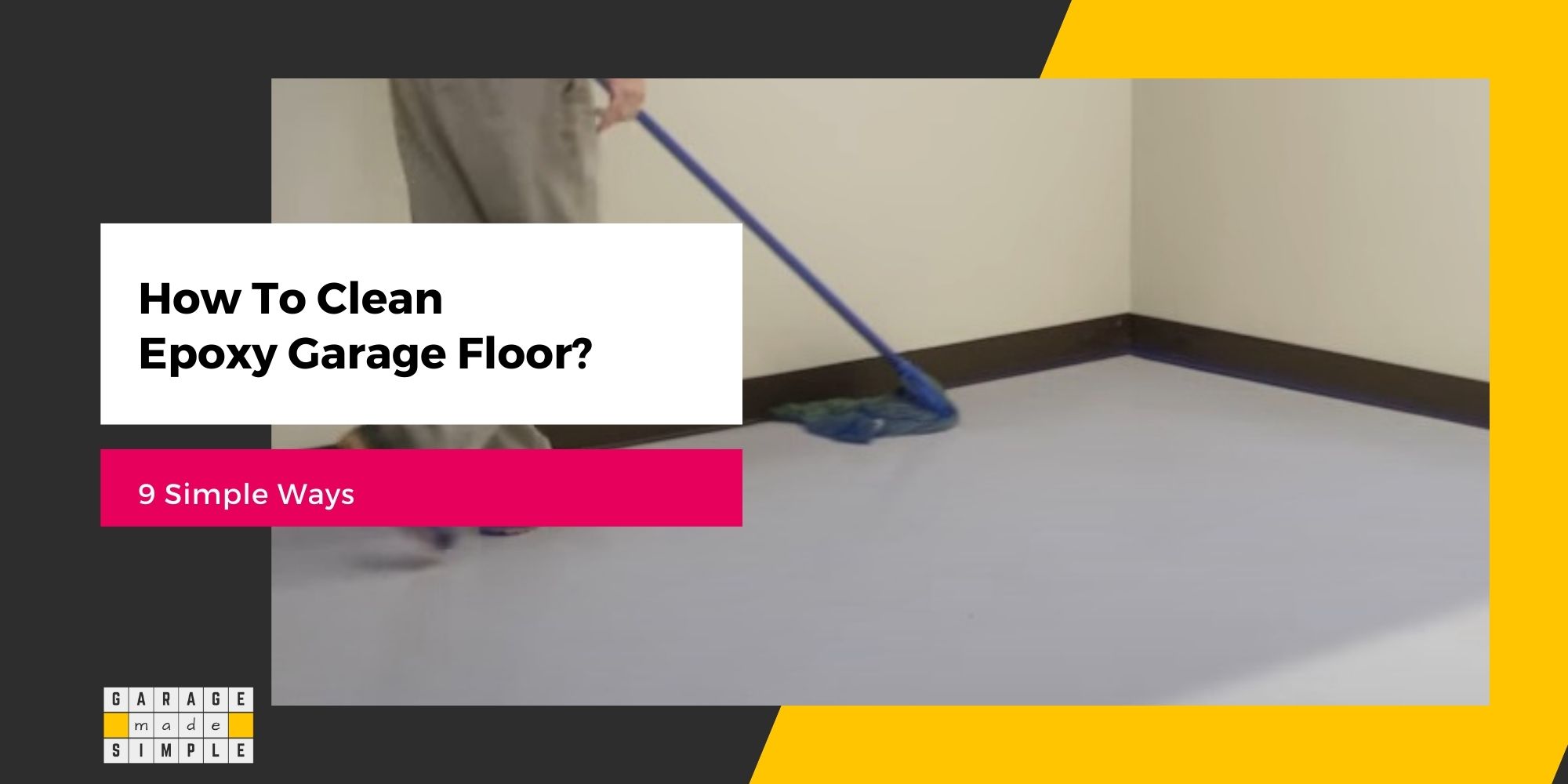Sealing a Concrete Garage Floor: 6 Step Helpful “How To” Guide!
As an Amazon Associate, I earn from qualifying purchases.
Should You Seal a Concrete Garage Floor?
Did you just have a new garage built with a concrete slab-on-grade floor? How do you plan to finish it? Will you be coating it with epoxy? Or do you prefer to cover it with tiles or mats? Whatever the finishing, should you seal your concrete garage floor first?
Sealing your concrete garage floor is essential to increase its durability by protecting it from moisture, oil spills, household chemicals and wear & tear. Cleaning & maintaining a sealed concrete garage floor is also much easier.
Not only is the sealer required for a new concrete garage floor it is also required for an existing garage floor. The life of a concrete sealer is limited. Penetrating sealers typically last 7 – 10 years and topical sealers last 1 – 3 years.
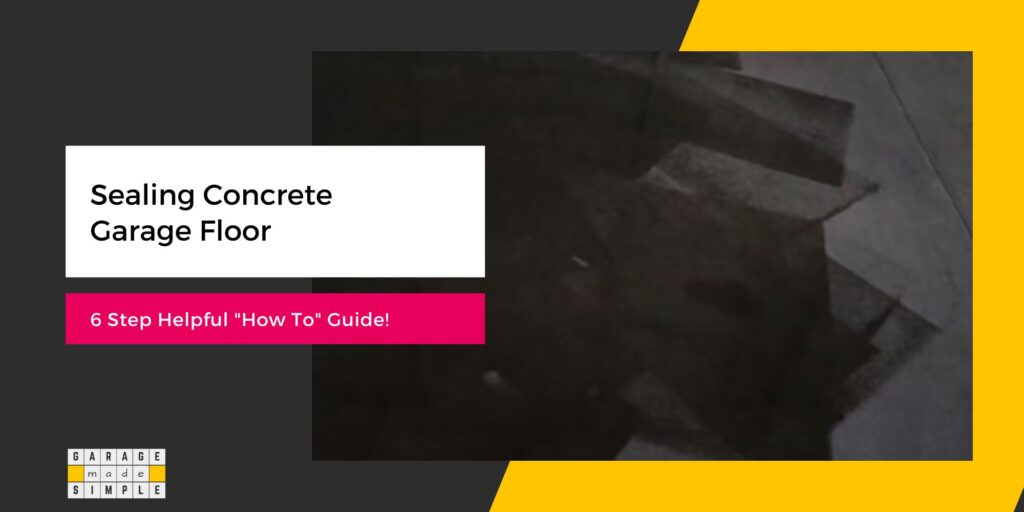
In this post I explain the pros & cons of sealing the garage floor, the different types of sealers and how to seal a new as well as an old concrete garage floor.
What Are the Pros & Cons of Sealing the Garage Floor?
There are many benefits of sealing the concrete garage floor. So let’s get into the details of the pros and cons.
Pros of Sealing a Concrete Garage Floor
Pro #1: Makes Concrete Moisture Resistant
The primary function of a sealer is to prevent moisture from getting into the concrete slab. Concrete, by nature, is highly porous. It will absorb moisture from any source; from the moist grade below and the humid air above. Ingress of moisture reduces the strength & durability of a concrete slab.
Sealer works as a moisture barrier. Penetrating and topical sealers work in different ways but they achieve similar results.
I have more details on penetrating and topical sealers and how they work in a later section.
Pro #2: Protects from Freeze Thaw Cycle
Concrete slabs that are not sealed can crack in freezing winters. The reason is the freeze thaw cycle.
Moisture that has permeated into a concrete slab will freeze when temperature falls below 32° F. Water expands when it freezes and puts a pressure on the concrete slab from within. Later when the temperature rises, the ice within the concrete melts, releasing the pressure.
The expansion & contraction stress can result in concrete garage floors developing cracks. Sealers protect the concrete floor from the freeze thaw cycle by preventing ingress of moisture into concrete.
Pro #3: Protects from Deicing Salts
Most garage floors will get wet when it rains or snows outside. The water is brought in by the cars and may sometimes flow in from the driveway. In freezing winters the water on the garage floor turns to ice.
You may have to use deicing salts to melt the ice and keep the floor non-slippery and safe.
Deicing chemicals usually contain salt. Salt dissolved in water can permeate into the concrete floor. Water containing salt is corrosive, especially for steel reinforced concrete. Concrete sealer will protect the garage floor from the salt in the deicing chemicals.
Pro #4: Makes Cleaning Spills Easier
The garage floor is, sooner rather than later, going to get stains. Gas & oil spills are most common. But you may even get food & beverage spills from time to time.
Stains are difficult to remove because the spilled material is absorbed by concrete.
A sealed garage floor will not allow spills to penetrate. The spilled material will remain on the floor surface and can be removed easily with the right cleaner or degreaser.
Pro #5: Reduces Dust Levels
It is not surprising that a garage floor is usually quite dusty. After all, cars and other equipment keep coming in and going out. The garage door is large and is quite often left open for long hours.
However, it may surprise you to know that a fair amount of the dust comes directly from the concrete slab itself. During the concrete finishing process fine cement rises to the top giving the floor a smooth finish. Unfortunately, this cement layer is not very strong and crumbles to dust under abrasive forces.
A sealer, particularly a topical sealer, will encapsulate the weak cement layer and protect it from abrasion from car tires and foot traffic.
A sealed concrete garage floor is less likely to be dusty. Moreover, it will be easy to clean too!
Pro #6: Can be Used as Finish Coat
If you like the industrial look of gray cement then you could just use a topical sealer as a top coat. For an even better finish you could use an overlay of self-leveling concrete over the regular concrete slab.
Pro #7: Increases Durability
Penetrating sealer increases the durability of concrete by filling up the pores. This prevents water and corrosive chemicals from getting in.
Topical sealer, on the other hand, forms a protective layer on the concrete slab surface. This helps in reducing the effect of abrasion as well as damage from oil & chemical spills.
Cons of Sealing a Concrete Garage Floor
Con #1: Sealer‘s are Expensive
A good quality concrete sealer, whether penetrating or topical, is expensive. Water based penetrating & topical sealers cost $40 – $50 per gallon.
Con #2: Sealers Need Maintenance
Concrete sealers need frequent resealing. Penetrating sealers will last for 7 – 10 years. But topical sealers last for only 1 – 3 years, depending on the quality and traffic.
To find out when it is time to reseal, just sprinkle a few drops of water on the clean surface of the concrete garage floor. If the water beads up, the existing sealer is still good. If it spreads out then it is time to reseal.
Con #3: Resealing Takes Time & Effort
The application of a sealer on the garage floor is not too different from a paint or coating application. You need to move everything that you have in the garage out and find a temporary storage space for it.
Sealing and resealing of concrete garage floor is expensive, time consuming and requires quite some effort. But then, “NO PAIN NO GAIN”.
Sealing a concrete garage floor is totally worth it when you compare the pros with the cons.
What Should I Use to Seal My Concrete Garage Floor?
A sealer is a clear liquid that protects porous substrates such as concrete slabs from water and harmful chemicals.
Concrete sealers can be broadly classified into:
Penetrating Sealers:
Penetrating sealers are silicon based compounds such as silanes, siloxanes, silicates & siliconates. These are clear low viscosity liquids that can be applied to a concrete slab with a low pressure spray.
Silanes work the best with concrete garage floors according to ConcreteSealersUSA
“Due to their small molecule size, Silanes are frequently used for sealing pre-cast concrete and high performance concrete such as: parking garages, bridge decks, building facades, and concrete forms.”
ConcreteSealersUSA
Silanes penetrate into the concrete, react chemically within the capillaries to block them, but will not form any film on the surface.
Recommended Product:
Topical Sealers:
Topical Sealers form a vapor barrier film on top of the concrete floor and prevent water from entering the pores from the top.
However, such sealers should be removed from the surface of the floor, before applying Epoxy Paint or Epoxy Coating. Topical sealers interfere with the paints & coatings ability to adhere to & bond well with the concrete floor.
Topical sealers can be Thin Film or High Build.
Thin Film Sealers:
Thin film sealers are acrylics and can either be solvent-based or water-based. They leave a very thin clear film on the surface of the floor. The water-based sealer is convenient as it dries pretty fast.
High Build Film Sealers:
High build film sealers are usually Polyurethane or Epoxy clear coats. Traditionally they used to be solvent-based but now water-based versions are available and proving to be popular.
Epoxies are harder and can handle impact better. (On the other hand PU is softer and can handle scratches better).
Recommended Product:
How to Seal a New Concrete Garage Floor?
Even a new concrete garage floor needs to be sealed. If you plan to finally epoxy your garage floor then penetrating sealer would be the best choice.
However, if you plan to go with the natural concrete look or use other coverings such as mats or tiles, then you should be sealing the concrete garage floor using both the penetrating sealer and the topical sealer.
STEP #1: Let Fresh Concrete Cure Completely
You should never attempt to seal a new concrete floor unless it has cured fully. Full curing of a concrete slab generally takes four weeks.
STEP #2: Check for Moisture Content
Paint or coatings should never be applied to a concrete slab if the moisture levels within the slab are high. The adhesion will be quite poor.
Following is a very easy way to check if your new concrete garage floor is dry enough to be sealed.
Place a new large garbage bag flat on the garage floor. Tape the four edges to the concrete floor and leave it overnight. Remove the tape the next morning and check if any moisture has been trapped between the garage floor and the PVC bag.
If the floor and the bag is dry then the moisture content of the concrete slab is low enough for a sealer application.
STEP #3: Clean the Surface
New concrete will not have any stains but may have a lot of dust on it. Use a wet mop to clean the surface and remove the dust.
Sealer will not be able to penetrate into the concrete very well if the floor is dusty.
STEP #4: Penetrating Sealer Application
Apply the penetrating sealer uniformly over the garage floor, using a low pressure sprayer. Apply a second coat while the first coat is still wet.
STEP #5: Drying Time
Penetrating sealers get absorbed into the concrete. Little, if any, will be left on the surface.
Nonetheless, you should allow 24 hours for the sealer to chemically react within the pores and form the hydrophobic barriers that will make the concrete slab impervious to water ingress.
STEP #6: Topical Sealer Application
A topical sealer should never be applied if you plan to use any paint or coating on your garage floor.
However it is highly recommended if you are going for a natural concrete look or plan to install garage floor mats or tiles.
You can apply the topical sealer 24 hours after applying the penetrating sealer. Use a roller or a spray to get a thin coat over the entire garage floor. Let it dry for 24 hours.
Apply the second coat the next day in the same way as the first coat. Once again, let it dry for 24 hours.
How to Seal an Old Concrete Garage Floor?
From time to time you will need to reseal an old concrete garage floor. Resealing of topical sealers is typically done every 1 – 3 years. Resealing of penetrating sealer is required only once every 7 – 10 years.
The process of sealing or resealing an old concrete garage floor is as under:
STEP #1: Clear out the Garage
You will need to move out everything that is not fixed to the garage floor. Make sure that you have temporary storage for your belongings for a few days.
STEP #2: Sweep the Floor
Sweep the entire garage floor using a broom to remove as much of the debris and dust as you can. Sweeping will get the debris but may not be able to get all the dust. So follow it up by vacuuming the floor to get the remaining dust.
STEP #3: Pressure Wash
Rinse the garage floor with water and some dish soap. Spread the soap water on every section using a squeegee or a stiff brush. Then use a pressure washer to clean the garage floor thoroughly.
If the soap solution fails to remove some of the oil stains then use a degreaser on those sections.
Let the floor dry out completely after the pressure washing.
STEP #4: Penetrating Sealer Application
NOTE: This step is only applicable if required. However, you must remove any old topical sealer using a concrete grinder so that the penetrating sealer has access to bare concrete.
Apply the penetrating sealer uniformly over the garage floor, using a low pressure sprayer. Apply a second coat while the first coat is still wet.
STEP #5: Drying Time
NOTE: This step is only applicable if penetrating sealer has been applied.
Penetrating sealers get absorbed into the concrete. Little, if any, will be left on the surface.
Nonetheless, you should allow 24 hours for the sealer to chemically react within the pores and form the hydrophobic barriers that will make the concrete slab impervious to water ingress.
STEP #6: Topical Sealer Application
A topical sealer should never be applied if you plan to use any paint or coating on your garage floor.
However it is highly recommended if you are going for a natural concrete look or plan to install garage floor mats or tiles.
You can apply the topical sealer 24 hours after applying the penetrating sealer. Use a roller or a spray to get a thin coat over the entire garage floor. Let it dry for 24 hours.
Apply the second coat the next day in the same way as the first coat. Once again, let it dry for 24 hours.
Thank you very much for reading the post. I do hope you found it informative and useful.

